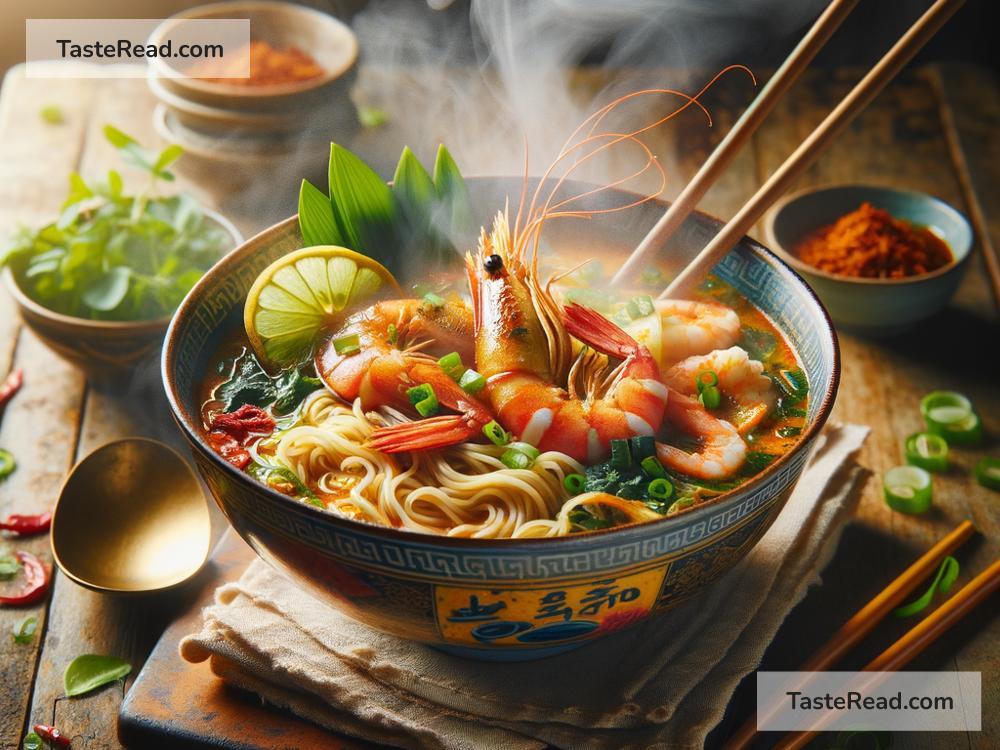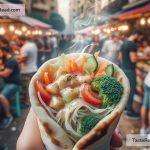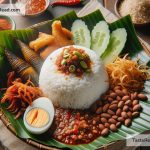Title: The Journey of Laksa: How it Became Malaysia’s Beloved National Dish
The story of Laksa, a savory and spicy noodle soup, is not just about food. It’s a tale that weaves through the cultural and historical fabric of Malaysia, showcasing its journey from a simple meal to becoming a national treasure. This dish, with its rich flavors and heartwarming qualities, embodies the essence of Malaysian hospitality and the melting pot that is its society.
Origins of Laksa
To understand how Laksa endeared itself to the hearts of Malaysians and became a national dish, we must take a trip back in time. Laksa’s origin is as diverse as its ingredients, with various regions in Southeast Asia laying claim. However, the consensus is that it was born from the intermingling of Chinese and Malay cuisines, during the time when Chinese migrants settled in maritime Southeast Asia and began intermarrying with the local Malays. This fusion, known as Peranakan culture, gave birth to a unique culinary tradition with Laksa being one of its shining stars.
The Many Faces of Laksa
There isn’t just one way to prepare Laksa, and this versatility has played a crucial role in its national acclaim. Across Malaysia, different states and regions boast their own versions of this beloved dish. The most famous variants include the Penang Laksa, known for its tangy tamarind base; the rich and creamy Laksa Lemak from the Peranakan culture; and the Sarawak Laksa, a unique blend that has been dubbed the ‘breakfast of the gods’ by world-renowned chef, Anthony Bourdain.
What makes Laksa particularly special is its complex flavor profile. A typical Laksa broth is a harmonious blend of spicy, savory, sweet, and sour notes, achieved by simmering ingredients like chili, tamarind, lemongrass, galangal, and coconut milk. It’s then served with noodles, usually rice vermicelli or thick wheat noodles, and topped with a variety of ingredients such as chicken, shrimp, fish cakes, bean sprouts, and fresh herbs.
Laksa’s Rise to Prominence
The transformation of Laksa from a regional specialty to a national dish is a testament to Malaysia’s cultural diversity and its impact on the culinary scene. As Malaysians moved around the country, they carried with them their culinary traditions, including Laksa. Each region adapted the dish to suit local tastes and available ingredients, creating a delightful variety that only added to its appeal.
Moreover, the global movement of Malaysians for work and study brought Laksa to international taste buds. It wasn’t long before this Malaysian delight was feted in food capitals around the world, further cementing its status back home.
A Dish That Unites
In Malaysia, food is more than just sustenance—it’s a way to bring people together, to celebrate diversity and unity. Laksa, in all its forms, is a perfect example of this. It’s not uncommon to see people from different ethnic and social backgrounds sitting side by side at a hawker center, enjoying a steaming bowl of Laksa. This dish transcends cultural barriers, symbolizing a shared national identity and pride.
Laksa in the Modern Day
Today, Laksa remains a staple in Malaysian cuisine, beloved by locals and sought after by tourists. From street vendors to high-end restaurants, this dish is celebrated everywhere in Malaysia. Food festivals, competitions, and even cooking classes are dedicated to the art of making Laksa, each aiming to preserve and promote this cherished dish.
Furthermore, Laksa has inspired culinary innovation, with chefs and home cooks alike experimenting with its recipe. Vegetarian versions have popped up, along with fusion renditions that incorporate elements from other cuisines, proving that Laksa’s journey is far from over.
In Conclusion
Laksa is more than just a dish—it’s a symbol of Malaysia’s rich cultural diversity and history. Its evolution from a simple Peranakan meal to a national dish illustrates how food can bring people together, creating a sense of community and shared heritage. So the next time you savor a bowl of Laksa, remember, you’re not just tasting a delicious meal, but experiencing a piece of Malaysian soul.


